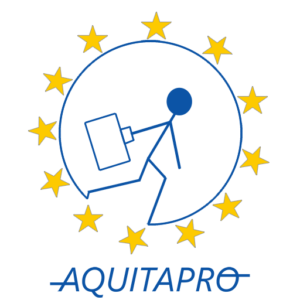THE AQUITAPRO CONSORTIUM
What is AQUITAPRO?
The European Mobility of AQUITAPRO is a project whose scope goes beyond the framework of a simple mobility program. AQUITAPRO exists to help students go on a professional internship abroad and to give them the benefit of a rewarding vocational training.
FCIL-AQUITAPRO
We have created a specific vocational training: the FCIL-AQUITAPRO, at the end of which the candidates receive a diploma.
This training is funded by the European Union (the Erasmus+ scholarship program) and the Regional Council of New Aquitaine. The FCIL-AQUITAPRO allows young people from vocational trainings and newly graduated apprentices to live a six-month professional experience in Europe, combined with reinforced learning in the language of the place of internship.
The AQUITAPRO consortium
The Aquitapro consortium is a vast network between partner high schools, the region Nouvelle-Aquitaine and the Bordeaux school academy. It revolves around the coordinating high school: the Lycée Gustave Eiffel. Support for students during the year of their mobility is the responsibility of this coordinating high school. It organizes their training, their departure abroad and their return from training.
ECHE / Charte Erasmus+
The lycée Gustave Eiffel has received the Erasmus Charter for Higher Education, 2021 – 2027.
We also obtained Erasmus accreditation for the 2021 – 2027 program.
Goals
Our main purpose remains employment for young people. We want to provide them with:
- A foreign language;
- New professional skills;
- Adaptability and autonomy;
- Discovery of another culture;
- The opening of their professional and personal perspectives.
We hope to see them grow into thoughtful and responsible adults, full of opportunities.
Results
The results of our FCIL-Aquitapro are encouraging (2016 / 2017) :
- Out of 110 participants, 54 decided to enter the professional world (in France or abroad):
27 students received job offers at their work placement;
8 were hired in France, following their European internship; - 56 decided to continue their studies. During the individual pre-departure interview, only 30% considered it; this demonstrates new thinking and a certain maturity following this long-term mobility.


